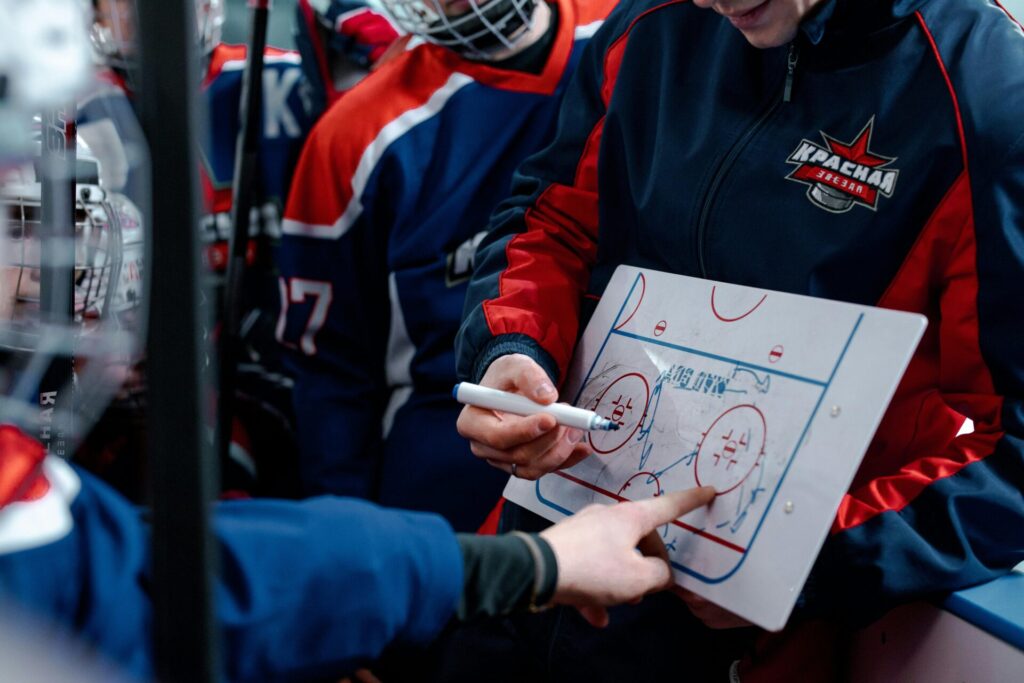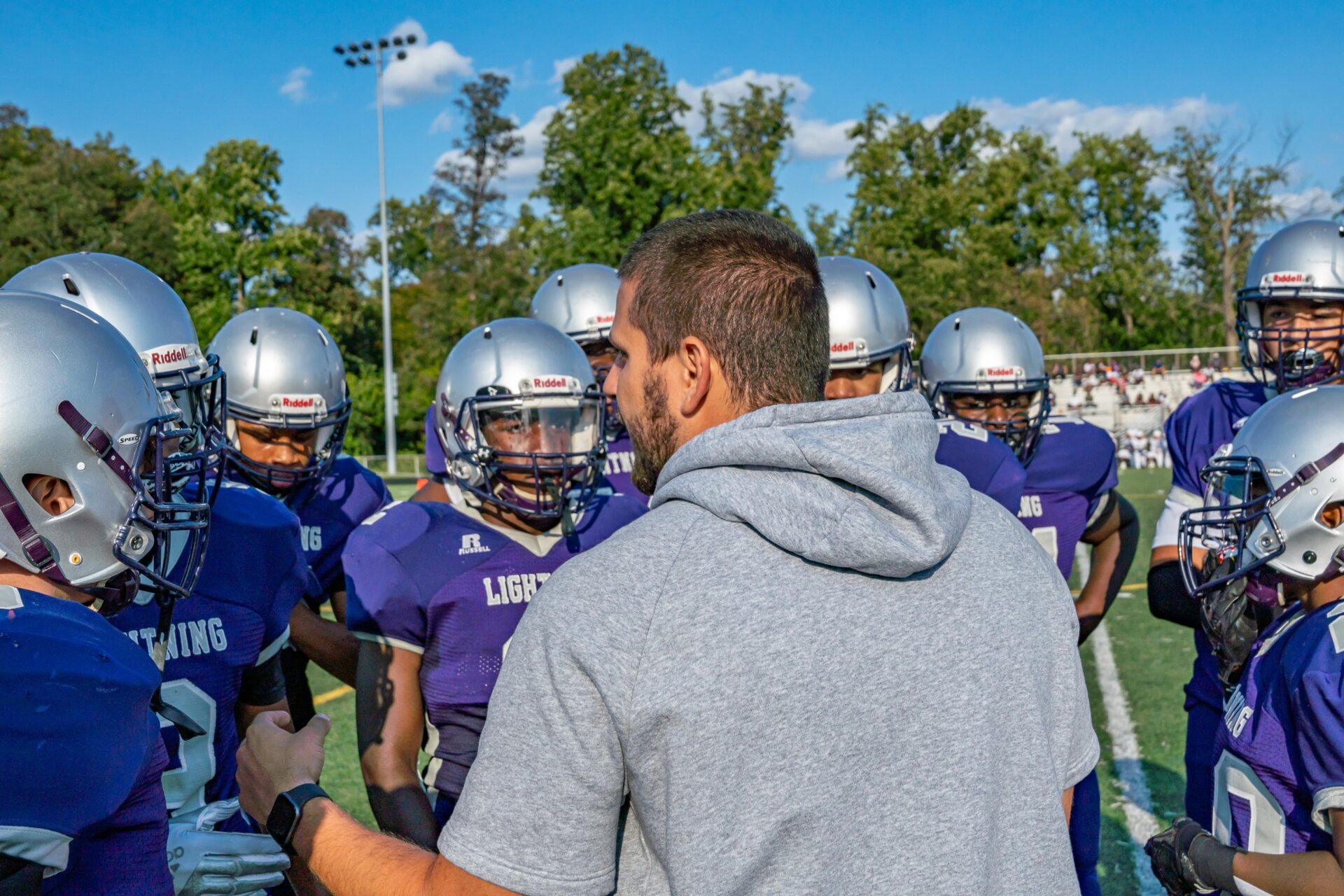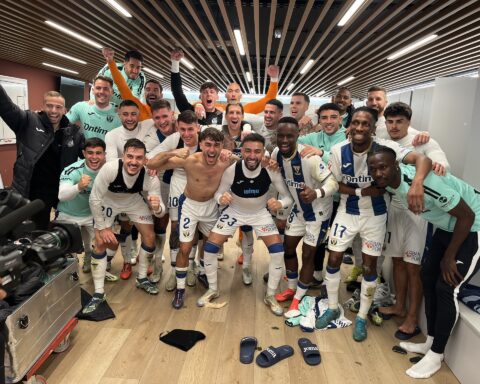Team chemistry is a fundamental component of successful sports teams. It involves the dynamic interplay between team members, fostering a sense of unity, mutual respect, and collaboration. Strong team chemistry can enhance performance, improve communication, and increase overall team satisfaction. Both coaches and players play pivotal roles in building and maintaining this chemistry. Here are comprehensive strategies for fostering strong team chemistry.
1. Fostering Open Communication
Open communication is the cornerstone of team chemistry. For a team to function cohesively, every member must feel comfortable expressing their thoughts, concerns, and ideas. Coaches should encourage an environment where players can speak freely without fear of judgment. Regular team meetings, one-on-one check-ins, and feedback sessions can facilitate this.

- Team Meetings: Schedule regular meetings where players can discuss their thoughts on recent games, training sessions, and strategies. This open forum allows for the exchange of ideas and helps resolve any misunderstandings.
- Feedback Sessions: Constructive feedback is vital. Coaches should provide positive reinforcement and constructive criticism, and players should be encouraged to offer feedback to their peers and coaches.
2. Building Trust Among Team Members
Trust is essential for effective teamwork. Without trust, team members may be hesitant to rely on each other, hindering performance and collaboration. Building trust requires time, consistency, and effort from both coaches and players.
- Consistency: Coaches should be consistent in their actions and decisions. This reliability fosters a sense of stability within the team.
- Team-Building Activities: Engaging in team-building exercises, such as trust falls, group problem-solving tasks, and outdoor adventures, can help players learn to trust each other.
- Vulnerability: Encouraging players to share personal stories or challenges can build empathy and trust. When team members understand each other on a deeper level, they are more likely to support one another.
3. Establishing Clear Roles and Expectations
Clarity in roles and expectations helps avoid confusion and conflict. When players understand their responsibilities, they can focus on their tasks and contribute effectively to the team.
- Defined Roles: Coaches should clearly define each player’s role within the team. This includes understanding their position, responsibilities, and what is expected of them both on and off the field.
- Goal Setting: Setting individual and team goals provides direction and purpose. These goals should be specific, measurable, attainable, relevant, and time-bound (SMART).
4. Encouraging Collaboration Over Competition
While healthy competition can drive performance, excessive internal competition can be detrimental to team chemistry. Coaches should foster an environment where collaboration is valued over individual accolades.
- Team-Oriented Drills: Incorporate drills that require teamwork and communication. Exercises that emphasize passing, group strategy, and coordinated plays can strengthen collaborative skills.
- Recognizing Team Efforts: Celebrate achievements as a team rather than focusing solely on individual successes. Recognizing the contributions of all players, regardless of their role, promotes a sense of unity.
5. Promoting Inclusivity and Diversity
Inclusivity and diversity are crucial for a cohesive team environment. Respecting and valuing different backgrounds, perspectives, and skills enriches the team and enhances creativity and problem-solving.
- Diversity Training: Implement training sessions that educate players about diversity, inclusion, and the importance of respecting differences. This can help prevent misunderstandings and promote a positive team culture.
- Inclusive Practices: Ensure that all team activities and communications are inclusive. This means being mindful of language, cultural differences, and ensuring that all team members feel valued and included.
6. Developing Emotional Intelligence
Emotional intelligence (EI) is the ability to understand and manage one’s own emotions and the emotions of others. High EI among team members can lead to better relationships, improved communication, and a more harmonious team environment.
- Self-Awareness: Encourage players to develop self-awareness by reflecting on their emotions and how these affect their behavior and interactions with teammates.
- Empathy: Foster empathy by encouraging players to consider situations from their teammates’ perspectives. This can improve understanding and reduce conflicts.
- Stress Management: Teach players techniques for managing stress, such as mindfulness, breathing exercises, and positive visualization.
7. Leading by Example
Coaches and team leaders have a significant influence on team chemistry. Leading by example involves demonstrating the behaviors and attitudes expected from the team.
- Positive Attitude: Coaches should maintain a positive attitude, especially during challenging times. This optimism can be contagious and motivate players to stay focused and driven.
- Work Ethic: Demonstrating a strong work ethic sets a standard for players. When coaches and leaders show dedication and commitment, it inspires the team to do the same.
- Respect: Treating all players with respect, regardless of their role or skill level, fosters a culture of mutual respect.
8. Handling Conflicts Constructively
Conflicts are inevitable in any team setting. How these conflicts are managed can significantly impact team chemistry. Coaches should have strategies in place to handle conflicts constructively.
- Mediation: When conflicts arise, act as a mediator to help the involved parties communicate their issues and find common ground.
- Conflict Resolution Training: Provide training on conflict resolution techniques, such as active listening, finding compromise, and maintaining a focus on common goals.
- Addressing Issues Promptly: Do not let conflicts fester. Address issues as they arise to prevent them from escalating and disrupting team harmony.
9. Creating a Supportive Environment
A supportive environment where players feel valued and cared for can enhance team chemistry. This involves providing both emotional and practical support to team members.
- Mental Health Resources: Provide access to mental health resources, such as counselors or sports psychologists, to help players manage stress and anxiety.
- Encouragement: Regularly encourage and motivate players, recognizing their efforts and progress.
- Team Support Systems: Establish a support system within the team where players are encouraged to support and look out for each other.
10. Fostering a Sense of Belonging
A strong sense of belonging can significantly enhance team chemistry. When players feel like they are an integral part of the team, they are more likely to be committed and engaged.
- Team Rituals: Develop team rituals or traditions that build a sense of identity and belonging. This could be pre-game chants, team dinners, or celebratory gestures.
- Involvement in Decision-Making: Involve players in decision-making processes, whether it’s choosing team activities, setting goals, or devising strategies. This gives them a sense of ownership and belonging.
Strategies for Coaches and Players – Building team chemistry is an ongoing process that requires effort from both coaches and players. By fostering open communication, building trust, promoting inclusivity, and leading by example, teams can create a cohesive and supportive environment. The result is not only improved performance but also a more enjoyable and fulfilling experience for all team members.








